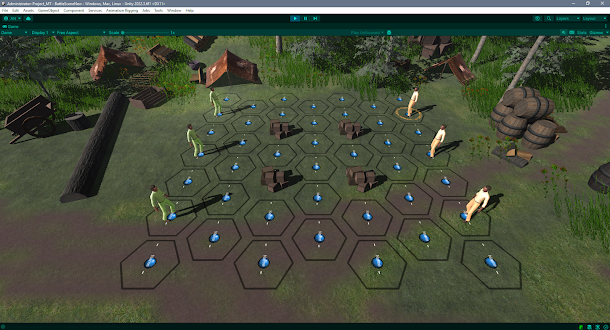Exploring Genre Theory: Tactics and Strategy in Focus
Words like "Tactics" and "Strategy" originated from military theory and have undergone some transformation in the context of computer games. I'll try to logically separate these concepts, but it's important to remember that video game genres are incredibly fluid constructions, much like music genres. There are no strict lists or rules dictating which genre a particular game belongs to (though "pure" genres still exist and evolve), and moreover, many games fall into certain genres while incorporating elements from others.
There are also misuses in defining genres for the sake of profit or popularity, further blurring their boundaries. (For instance, mobile RPG’s that don't always align with the classic RPG definition.) How then to differentiate between tactical and strategic games, especially when there are genres like tactical strategy, strategy with tactical elements, and so on? Let's return to theory.


Translating the military sense of strategy into computer games, it could be described as follows: strategic games are those in which the player manages resources and/or units. At the same time, the player doesn't have a full view of what they might encounter. This might include parts of the level hidden under a fog of war, the opponent's play style (whether AI or another player), random events that the player has to face, and so on.
As a result, the player has to formulate a strategy for their actions - a rough plan of action in conditions of complete or partial uncertainty. This definition isn't comprehensive, and you can easily recall games that fall outside these boundaries and are labeled under different genres. However, we don't need to fully define the vast diversity of this genre; we want to find differences between strategic and tactical elements.
In tactical games, the player has a complete understanding of the situation and can formulate tactics - a set of clear actions that take into account all possible consequences for a specific number of turns or within a certain timeframe.
A great example illustrating this division is the Heroes of Might and Magic series, where there's a global strategic mode and a tactical combat mode.
In the strategic mode, the player manages resources, establishes behavioral patterns, and encounters various unexpected events (such as learning a random skill in a witch's hut or encountering an enemy hero on the opponent's turn, etc.).
In the tactical mode, the player sees the entire map, all units, their characteristics, and can plan their moves while fully understanding the situation.
This distinction showcases how the game alternates between strategic decisions about resource management and unpredictable events on a broader scale, and tactical decisions involving combat and precise maneuvering based on full information about the battlefield.


Even games that seem to be "purely tactical" to us, such as chess, are not actually so. Even in those games, we are limited by our understanding of the situation to the extent of our ability to plan moves ahead – beyond that lies uncertainty. Additionally, in chess, there exist strategies that players might adopt based on how the situation on the board unfolds.
The theory of video game genres is an exciting field derived from game theory. However, game development is still very young, and in the future, I believe we will see numerous scientific articles on the development and definition of this area. I think that when my generation reaches retirement age, there will be plenty of time to take a comprehensive look at the long evolution of genres, play hundreds of unfinished games, and reflect on this subject. At the very least, I definitely plan to do so.
P.S. If you know or have read any scientific articles on these topics or are aware of researchers studying this issue, please share your knowledge! Stay tuned with me; there will be much more interesting content ahead.



Comments
Post a Comment